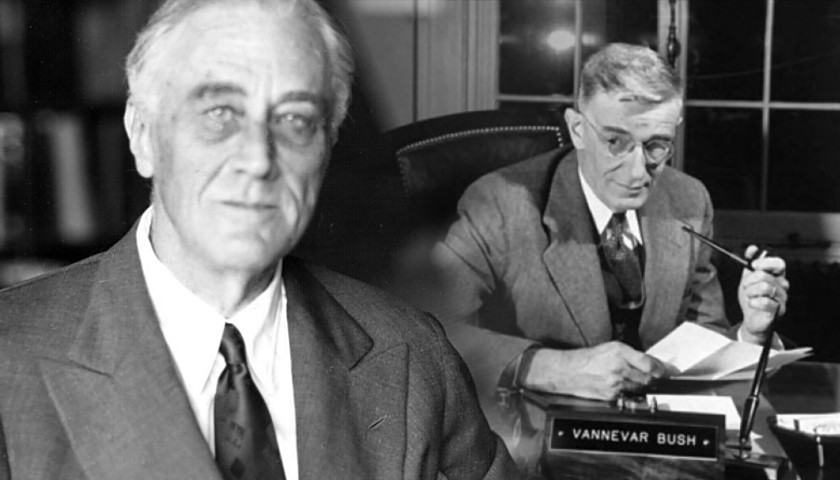by Robin Burk
In ancient Greek tragedy, the hero rises to fame only to be undone by hubris, the fatal flaw of overweening arrogance. But to understand the events that continue to unfold around the 2016 presidential election, it’s helpful to look farther east.
A generation before Sophocles chronicled the rise and fall of Oedipus, Confucius looked at a fractured Chinese world and argued that, above all, China needed social cohesion. Such cohesion could only come, he said, from protecting the “Five Relationships,” including that of ruler and subject. The subject must obey, for those who ruled had the “Mandate of Heaven” behind them. To defy the ruler would be to erode society.
In turn, the ruler must ensure the basic well-being of those he ruled, lest he lose the Mandate of Heaven. When that happens, order unravels.
And thus was born the powerful administrative elite in China, the shi. Refined in behavior and dress, the shi made Chinese empires possible. In theory, anyone could join this class by passing formal examinations. In practice, few who were not born into the class could acquire the necessary education, accent, and polished manner.
Fast forward to the mid-20th century and Vannevar Bush.
Head of the Carnegie Institution of Washington, former dean of engineering at MIT, and himself a prolific inventor, Bush looked around at the Depression-weary United States and saw the Nazi and fascist threat. He argued that the United States badly needed a coherent effort to fight them. Soon he was appointed head of the newly created Office of Scientific Research and Development, answering only to President Franklin D. Roosevelt himself.
Once installed, Bush launched multiple technology efforts to give the United States an advantage against the sophisticated German Wehrmacht and its industrial base. The results of his lab’s efforts included radar, improved airplanes, and the Manhattan Project. When the war ended he pushed to continue extensive federal funding for research and development, including a new National Science Foundation.

While Bush was engineering an ever-growing post-World War II R&D funding apparatus, the uppermost elite of American society – our senior mandarins – were not idle. They built the international institutions that reshaped economic and geopolitical relationships. Bretton Woods and the International Monetary Fund. NATO. A vastly expanded United Nations, with a mission and bureaucracy to support it.
And thus a new American administrative elite, our very own shi, was born. It quickly sank roots deep into our public life. Vastly expanded government bureaucracies intertwined with universities and federal contractors, fueled by federal tax dollars.
At the very top, the grandchildren of the robber barons, the nth generation military leaders, and other senior elites continued to wield influence after the end of World War II and the rebuilding of Europe. Many served honorably in various public and military positions.
Then hubris struck, as hubris is wont to do.
Our elites believe they can engineer complex systems and institutions from the top, and thereby control national and global conditions. The uppermost elite congregates at Council on Foreign Relations events and the World Economic Forum in Davos. The shi, aided by their federal contractors and the universities, assume they can fix problems of all kinds.
But our tech-based systems have outgrown such deterministic control. They have become what are technically called “complex adaptive networks,” systems of interdependence and interconnection so large and varied that they often respond to events in surprising ways even as we rely on them more and more.
Young people use AI facial recognition to log into their phones and buy things from online sites. Behind those purchases are deep networks: not only the cell phone system and the internet, but also a flow of raw materials to manufacturers and goods third-party warehouses, packaged by robots at Amazon or hand packed by artisans in another country, and delivered via a transportation system that would awe Vannevar Bush. Meanwhile funds flow across national boundaries and between banks, instantaneously and invisibly, in payment.
By far the deepest disruptions affecting us today are information tech-based. If central bankers increasingly find it difficult to control currency valuations and manage economic conditions, those whose power was based on their control of information and its flow to the public are facing even greater problems. Media that made the fatal choice of intentional bias. Universities, once the bastion of free inquiry, whose fervid attempts to control speech and thought rival anything George Orwell could have imagined.
Hardest hit are the most senior elites. The unraveling of their postwar structures and their failure to serve average citizens are increasingly evident. So too – fatally – is their deep identification with their peers transnationally.
Our elites have lost the Mandate of Heaven. Their hubris has dissolved the social compact they relied on, even as deeply disruptive new tech is emerging. AI-constructed videos that cannot be distinguished from live recordings. Future quantum computers able to decrypt all of the information in our existing systems. What social trust remains will be tested, perhaps to the breaking point.
When the emperor and his court lose the Mandate of Heaven, the remaining order unravels. And this time tech may accelerate the collapse.
– – –
Robin Burk started her career wearing bell bottom jeans in the basement of the Pentagon, where she had the challenging privilege of interacting with computing legend Grace Hopper, and in Silicon Valley, where she wrote one of the first commercially deployed Internet protocol software stacks. Read more…






When it comes to the elites that this article discusses, I have some mixed feelings. I share the concerns that isolationist Republicans had toward some of V. Bush’s and James Conant’s projects: especially their plan for a future PERMANENT (not temporary) peacetime male conscription program that they called Universal (actually male-only) Military Training and Service (UMTS) for several reasons: first, it was anti-male by requiring only male (including handicapped men) to serve while exempting able-bodied females. Second, and even more important, its purpose was NOT to protect the U.S. from outside enemies but to plunge the U.S. into reckless foreign adventures like Korea and Vietnam by providing an endless reservoir of male dupes for cannon fodder. Finally, had this law passed in 1952, it would have permanently deprived Congress of any say-so in foreign and military policy by placing no statutory expiration date on the conscription authority of the Executive and the Pentagon. Fortunately, that law was defeated, forcing the government to make do with a TEMPORARY Selective (actually Sexist) Service System that, at least, gave Congress the power of whether or not to renew the conscription authority. It was a shame, though, that opponents of any conscription did not have the power to end conscription and registration outright until 1973 and 1975. Had we been able to defeat the draft before 1950, we would have stayed out of Korea and Vietnam and saved a lot of American lives in the process.
One of the few good things I can say about the elite was the Bretton Woods Conference of 1944 that helped to stave off a recurrence of another 1929 Depression by stabelizing world currency to the gold and dollar standard and by prohibiting wild speculation until 1971 when the Nixon Administration forced its repeal. Between 1944 and 1971, our country enjoyed a relatively egalitarian economy called the Great COMPRESSION where we actually had a true middle class that comprised a bigger percentage of the population than either the lower or upper class. But now, most Americans make up the lower class as the middle class continues to disintegrate.
Hence, my mixed feelings about the elites.